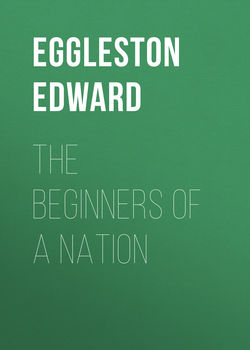Читать книгу The Beginners of a Nation - Eggleston Edward - Страница 22
BOOK I.
RISE OF THE FIRST ENGLISH COLONY
CHAPTER THE SECOND.
JAMES RIVER EXPERIMENTS
XII
ОглавлениеDale's return. The rough-handed soldier from the Low Countries had indeed brought the Virginia chaos into order, but it was an order almost as deadly as the preceding anarchy. Dale confessed that the government of Virginia was "the hardest task he had ever undertaken," and he got himself out of it after five years by making a theatrical return to England in 1616 with a train of Indians, including the "Princess" Pocahontas, converted, baptized with a Christian name as Rebecca, and wedded to an Englishman. Note 10. He added glowing reports of the country, and proved all by exhibiting "at least sixteen several sorts of staple commodities to be raised in this plantation." For greater effect, samples of twelve of these products of the colony were sold by public auction in the open court of the company. Though Dale could show many commodities, some of which have never flourished in Virginia since his time, he left behind him not an established community, but a mere camp of unhappy men retained in the country by the sheer impossibility of getting away. 18 After nine years of suffering, Virginia consisted of some three hundred and twenty-six men, twenty-five women and children, and graves outnumbering many times over all the living souls.
Three things had been discovered in Dale's time that were of importance to the colony. Dale had by personal experiment learned the two fishing seasons in the James River. The colonists had begun the profitable cultivation of tobacco, and the economic success of the colony was thereby assured. Lastly, even Dale's small experiment with private interest rendered the apportionment of the land and the establishment of private ownership certain to come in time. As early as 1614 it was estimated that three men working for themselves raised more corn than ten times as many when the labor was for the public stock. 19
18
The Discourse of the Old Virginia Company, an exceedingly interesting manuscript in the British Record Office, makes it appear that as late as 1618 the colonists had no thought of staying in Virginia, and even the directors at home were interested only in making money out of tobacco and sassafras, with little or no care to plant a permanent colony. Some allowance must be made, perhaps, for the ex-parte nature of this paper, but its tone and the high character of those who offered it give reason to trust it. Colonial Papers, iii, 40. Answer of the Virginia Company to Queries of the Privy Council in 1625.
19
We may trust Hamor's True Discourse, p. 17, for some of these details, though the book generally is discredited by the account given in the Tragicall Relation, which Hamor himself signed with others in 1623. A comparison of all these authorities makes it evident that only eighty-one who were ranked as "farmers" derived any benefit from Dale's three-acre division, while about two hundred others were probably left in unmitigated bondage.
